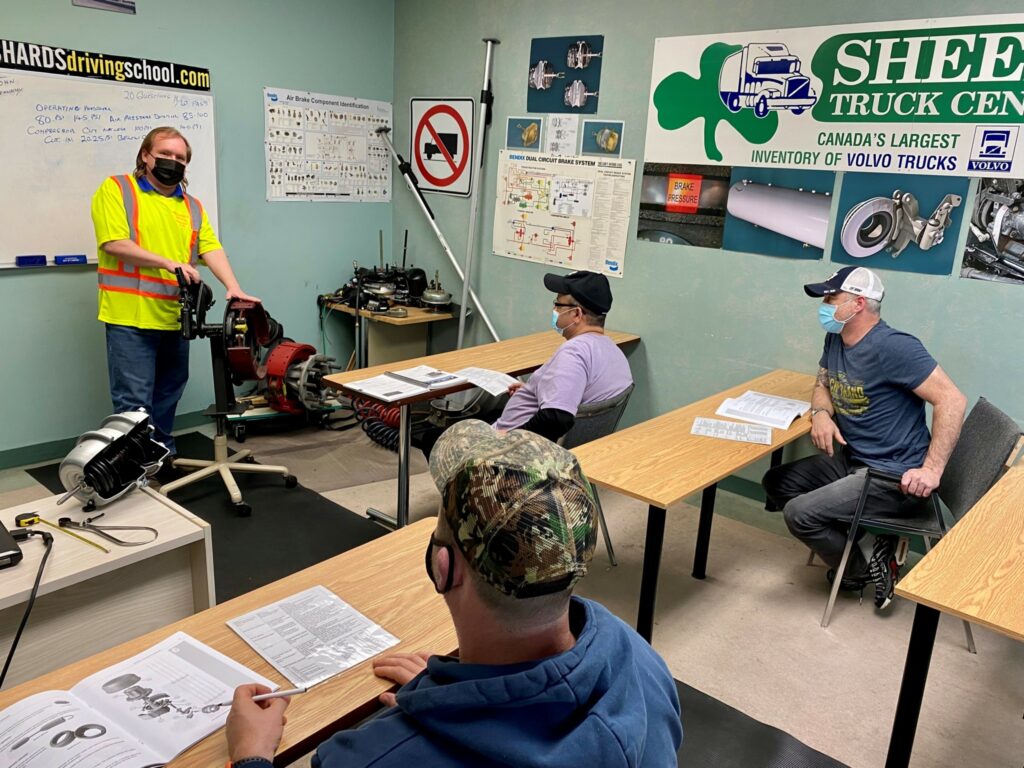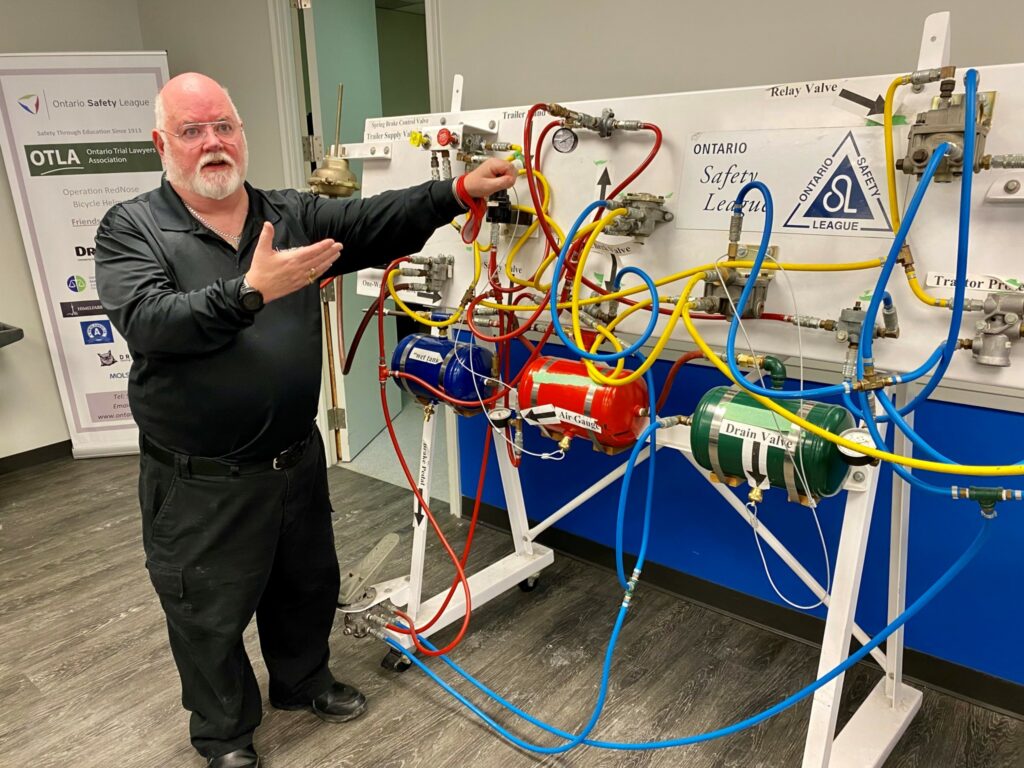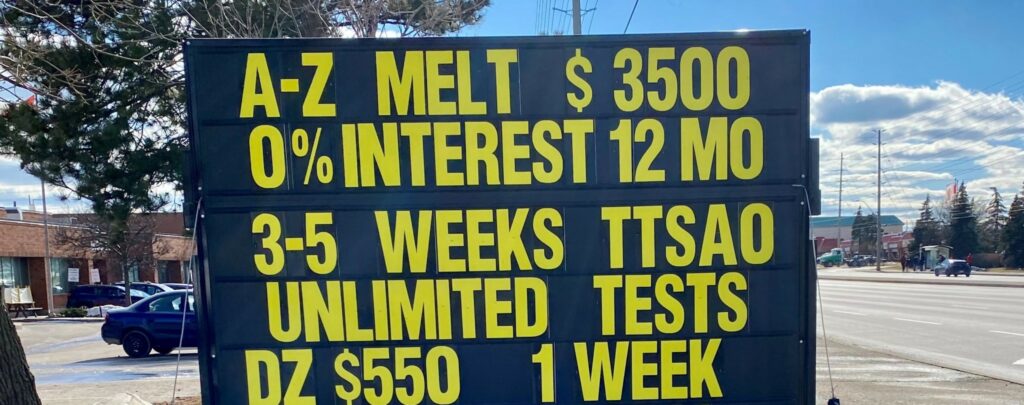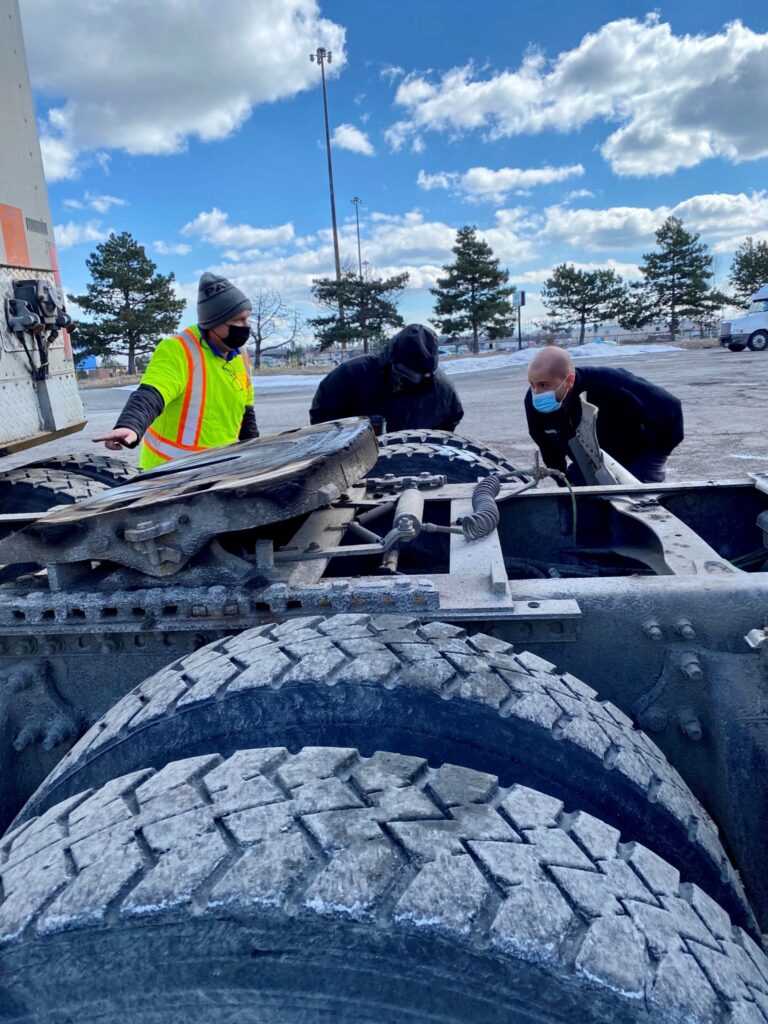Safety professionals sound alarm on schools offering training for low prices
Ontario truck driver training institutions and safety professionals are claiming fraudulent activity by some schools that offer A/Z training for very low tuition fees — and a report by the province’s auditor general raises concerns of its own.
“You can find MELT (mandatory entry level training) programs advertised in the Greater Toronto Area for $3,500. It costs around $6,000 to $7,000 to deliver that program,” says Rolf VanderZwaag, CEO of Techni-Com, a business that produces compliance and training products for driver training and vehicle inspection.
Radek Rogowski, operations manager at Richards Driving School in Mississauga, Ont., says ultra-low fees can be a sign of fraudulent activity.

“The 103.5-hour MELT program for $3,500 works out to $33 per training hour. I can barely find an instructor alone for less than that amount,” he says. “What about purchasing, repairing, maintaining vehicles? Fuel, office and yard rental fees, insurance, taxes, administrative costs?”
Ramandeep Singh, a driving school owner, said it costs about $4,000 to train a student, so $3,500 will not even cover expenses with instructors generally paid between $25 to $30 per hour.
Auditor General report
The Auditor General of Ontario admonished the Ministry of Colleges and Universities (MCU) in an audit released in December 2021, saying the ministry cannot effectively confirm instructor qualifications in private career colleges providing commercial truck driving programs.
“We found that the ministry inspectors and investigators cannot easily verify that instructors in the private career colleges providing commercial truck driving programs meet the standard of having a Class A licence for at least five years partly due to a lack of clarity on the type of documents each college should have available to meet Ministry of Transportation (MTO) standards,” the audit said.
The MCU said, with respect to oversight of commercial truck driver training programs, it is actively implementing its registration, inspection, and investigation regime to ensure compliance with legislation and training standards across private career colleges, including those that offer commercial Class A trucking programs.
“Private career colleges, including those offering commercial Class A trucking programs, are subject to routine inspections, which can lead to more in-depth investigations depending on the findings. The ministry is implementing a risk-based approach to prioritize inspections across private career colleges, including those that offer commercial truck driver training programs,” said James Tinajero, issues management and media relations spokesman for MCU.

Brian Patterson, president and CEO of Ontario Safety League, said the ministers of MCU and MTO agreed two years ago on a joint task force involving MTO inspectors and MCU auditors. “Nothing has been accomplished,” he said.
The MTO in a statement said the province’s MELT requirements are among the highest safety standards in North America. The ministry is currently monitoring and evaluating MELT for Class A to assess its impact on road safety and the trucking industry as a whole.
VanderZwaag said the GTA is rife with stories of schools not running properly, and it is hard to dismiss the rumors with limited oversight.
One school in Mississauga has a sign outside its office offering training for $3,500. A call to the school revealed training would be held over five weeks — a week of online classes and four weeks of practical training in the yard and on the road. Training would include the 103.5-hour MELT program, they said.

Another school advertised classes for $3,900, but when contacted said the promotion had expired. It is now offering a five-week course for $4,500 including two road tests.
People who obtained their A/Z licence years ago, and maybe drove a few months and never touched a truck’s steering wheel after that, are now looking for jobs as instructors.
Rupinder Kamboj, a driving school owner, says they must provide verifiable experience when applying for a job, and prospective employers should be able to confirm the information from previous employers.
VanderZwaag says the trucking industry needs to be more involved. Carriers are the ultimate beneficiaries if the program works, or victims if it does not.
The OSL’s Patterson says there are schools with five trucks that have 1,500 students enrolled per year. “If they charge $4,000 per student, that is $6 million in revenue. Canada Revenue Agency should take a look at these schools,” he says.

A certified air brake trainer who did not want to be identified said the MCU has the same inspector for different types of private colleges. An inspector who checks on a haircare or skincare academy also inspects truck driving schools. He said there are no specialists, and if the paperwork is correct, they won’t find anything wrong.
MCU’s Tinajero said the ministry conducts comprehensive independent investigations, and in instances of non-compliance, the Superintendent of Private Career Colleges pursues enforcement measures, ranging from compliance orders and financial penalties, to suspending or revoking registrations.
MELT review
Tinajero said the ministry will also work to develop processes to ensure that private career colleges employ qualified instructors to deliver approved vocational programs and validate that their records are complete. The ministry is also engaging with MTO as it reviews MELT for commercial truck driver training programs.
The MTO said it is “constantly monitoring and reviewing its policies and programs and appreciates feedback, to help identify and recognize any action that will improve road safety and/or reduce burden on individuals as the safety and welfare of all is our top priority. MTO is currently in consultation with its road safety partners to address commercial vehicle safety, the MELT program, including education, training and technology as part of a strategy to address road safety issues.”
Richards Driving School’s Rogowski thinks MELT is a great idea but argues it is not being administered properly. He says raids would be helpful. As with OSL’s secret shoppers who attend air brake programs, MTO could send their personnel to attend MELT programs at driving schools, he suggests. “It is probably the most effective way to weed out the bad operators.”
- This story has been updated, stating that the MELT program duration is 103.5 hours.
Have your say
This is a moderated forum. Comments will no longer be published unless they are accompanied by a first and last name and a verifiable email address. (Today's Trucking will not publish or share the email address.) Profane language and content deemed to be libelous, racist, or threatening in nature will not be published under any circumstances.
Have said it before: This will only change once truck driving is classified as a skilled trade and training only offered by community colleges or highly regulated trade schools. The PCC and MELT model is not working – the next Humboldt tragedy is only when not if.
As a skilled trade, truck students would have OSAP funding available, currently they do not.
Next – aggressively go after unsafe companies that will also prey on poorly trained new drivers that can’t find better work. This includes the fraudulent use of the Driver Inc. model. This problem of “bad” schools goes away overnight if the MTO road test wasn’t so easy and limited. Training for the modern trucking industry involves much more than just being a steering wheel holder. MELT isn’t good enough – what’s happening with these “schools” is criminal – how many more crashes – single vehicle rollovers- and sadly, fatalities do we need to endure before this changes – I’m not hopeful.
-
Well said Ron and others , I have worked in the training industry training drivers since 2008. Melt does not work in its present form and I am confident that there are many drivers with a licence that I certainly would never employ. Employeers please ensure a very strict road test id carried out before employing a new driver when the government realise that some of these drivers are unemployable and they have to pay for them then maybe they might be more open to listen You can not take a car driver and turn them into a skilled proffesional truck driver in 103.5 hrs period! In July with no added hours they may have to learn to drive manual too in that time ???? Well said Ron I am also not hopeful of change .
With the price of equipment, insurance as well as fuel, unless your instructors work for free, on road time needs to be $100 / hour minimum and you might break even. The industry will only benefit once these schools focus on providing a valuable experience to their students, giving them their moneys worth at a much higher price point. This constant race to the bottom benefits no one.
MELT program is an eyewash. I attended a so called “Community College” program and it was not that different from the “cheap” schools. The quality of instruction and instructors was also bad. There should be some kind of selection process for instructors as well. The program length should be minimum 5-6 months with maximum on the road time. It should be offered ONLY through community colleges.
Always someone who will find a way to cut corners to deliver something, in this case MELT training.
I have heard, that for a fee, there are some schools that will falsify training results and send a ringer in to take your test. Head covering, face mask and no one knows who is being tested.
True or not I have no idea but seeing some of the people on the roads and trying to park or back into a dock,
possible.
Why cant we have something like a CVOR for training schools and maybe call it CSOR. Schools whose graduates have the most violations/crashes in the first 2 yrs of driving get penalized severely or even shut down.
It is so scary, someone coming from a foreign country, within 3 months has an AZ licence. 20-40 hours and he/she is behind a tractor/trailer loaded with product.
This is so unfair to other schools that are training with loads and proper instructions.
Thanks Truck News “TTSAO” schools are finally exposed. So called insurance companies are involved in this scam offering two years experience with these TTSAO Schools. No wonder they are selling two years experience certificate for additional $1000.